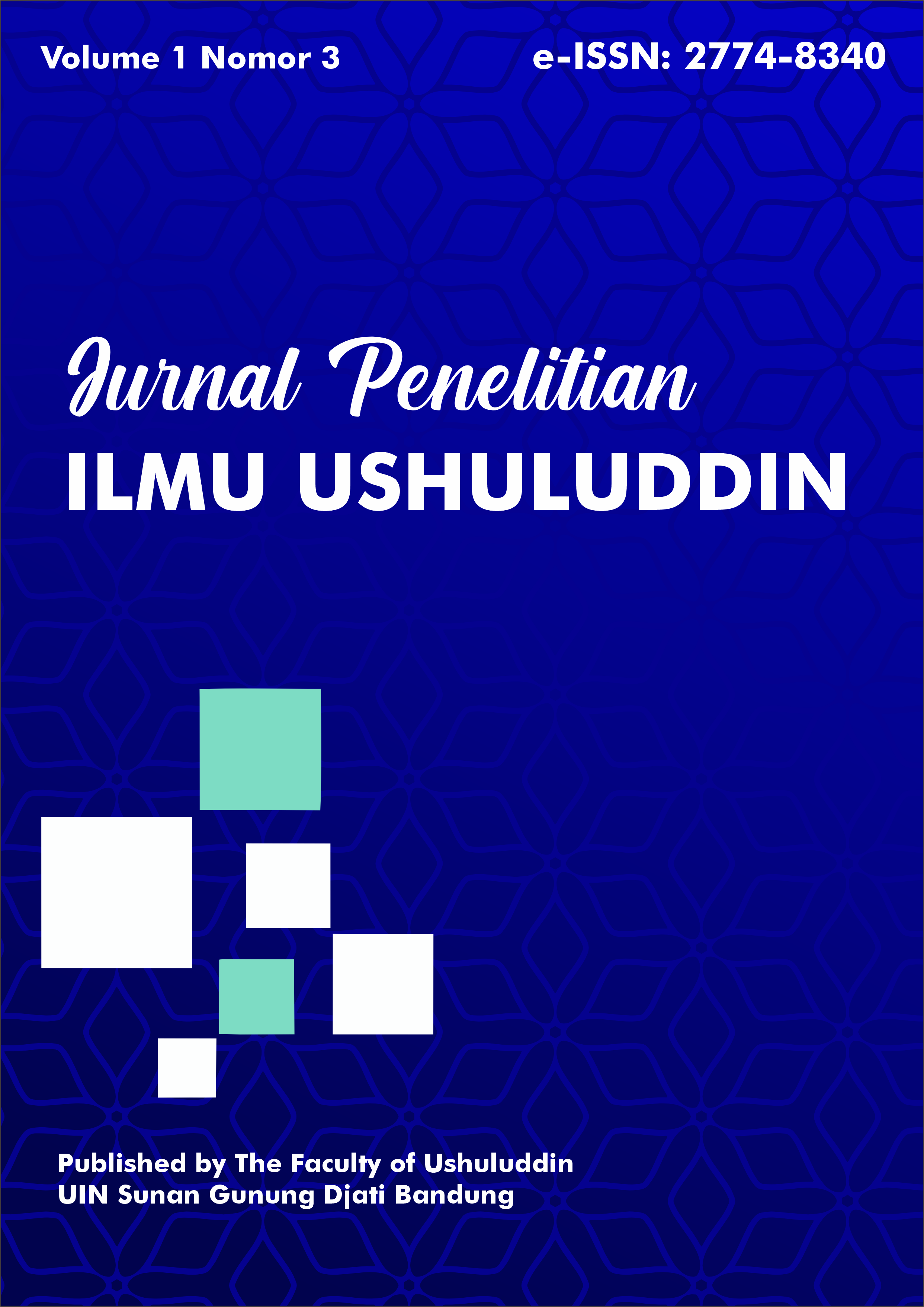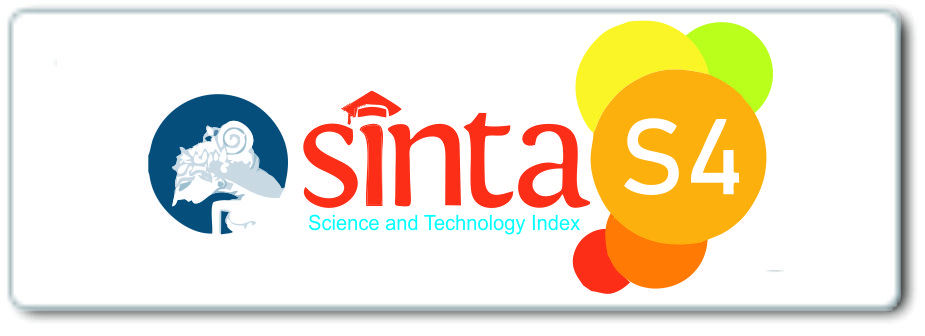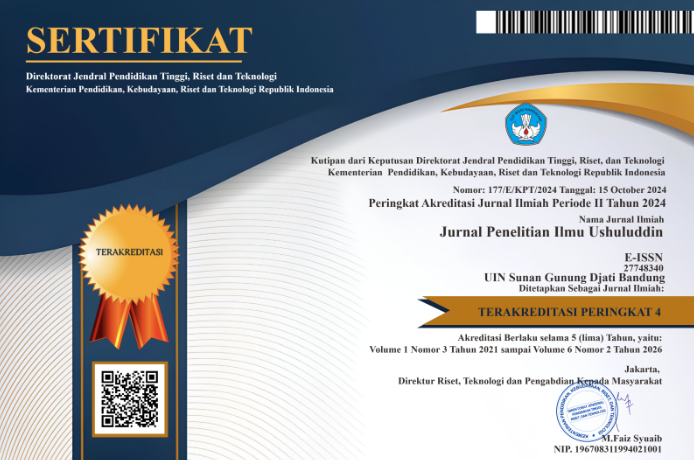Komparasi Zakat Profesi dalam Agama Islam dan Persepuluhan dalam Agama Kristen Protestan
DOI:
https://doi.org/10.15575/jpiu.12769Keywords:
Christianity, Comparative, Islam, Persepuluhan, ZakatAbstract
This study aims to discuss the similarities and differences between professional zakat in Islam and tithing in Christianity. This research method is a qualitative type through library research and field studies by applying comparative descriptive analysis. The results and discussion of this study indicate that professional zakat in Islam and tithing in Christianity both originate from the holy books of each religion, it is found that there are similarities and differences between professional zakat in Islam and tithing in Christianity, and the meeting point of both has implications for the development of religious philanthropy in Indonesia. This study concludes that tithing is required in Malachi 3:10-11 and professional zakat is required in QS al-Baqarah verse 267 where the wisdom of both is for the benefit of the people or congregation, while the difference is that tithing can be carried out by anyone and professional zakat can only be implemented by people who have reached nishab, and the first aims to return God's gift and the second aims to clean up wealth.
References
Marimin, A., & Fitria, T. N. (2015). Zakat Profesi (Zakat Penghasila) Menurut Hukum Islam. Jurnal Ilmiah Ekonomi Islam, 1(01).
Anonim. (2021). jw.org. Retrieved from https://www.jw.org/id/ajaran- alkitab/pertanyaan/perpuluhan-di-alkitab/
At-Taubah. (103). 103.
At-Taubah. (103).
Baznas. (2019). Ketentuan dan Pembagian Zakat Sesuai Syariat Islam. Artikel Baznas Jabar.
Bilangan. (18:21). 21.
Bilangan, K. (18:21). 21.
Darmalaksana, W. (2020). Cara Membuat Proposal Penelitian. Bandung: Fakultas Ushuluddin UIN Sunan Gunung Djati Bandung.
Darmalaksana, W. (2020). Formula Penelitian Pengalaman Kelas Menulis. Jurnal Kelas Menulis UIN Sunan Gunung Djati Bandung. Retrieved from http://digilib.uinsgd.ac.id/32620/
Darmalaksana, W. (2020). Metode Penelitian Kualitatif Studi Pustaka dan Studi Lapangan. Pre-Print Digital Library UIN Sunan Gunung Djati Bandung.
Diki. (2019, Desember 10). Persepuluhan di Gerakan Gereja Pantekosta Maranatha Kota Cimahi. (Gingin, Interviewer)
H.R Bukhori Muslim, H. (n.d.).
Howard W. Hunter. (2019). Ajaran Ajaran Howard W. Hunter. Gereja Yesus Kristus dari Orang-Orang Suci Zaman Akhir, 1-5.
Ibrani. (7:5-18). 5-18.
Ichsan, M. (2017). Zakat Mal dalam Islam dan Persepuluhan dalam Agama Kristen.
Makasar: Repositori Uin Alauddin Makasar.
Imamat, K. (27:30). 30.
KBBI. (2021, Maret 29). Retrieved from https://kbbi.kemdikbud.go.id/entri/agama Kejadian, K. (14:18-20). 18-20.
Kolase. (2:13-14). 13-14.
Korintus. (9:13).
Maleakhi. (3:10). 3.
Maleakhi. (3:10). 10.
Navilah, I. (2013). Persepsi Muzakki tentang Zakat dan Peran Kyai terhadap Upaya Optimalisasi Pengelolaan Dan Pendistribusian Zakat Pada Badan Amil Zakat Kabupaten Cirebon (Studi Kasus tentang Upaya Optimalisasi Pengelolaan dan Pendistribusian Zakat di Kecamatan Astanajapura Kabupaten Cirebon) (Doctoral dissertation, IAIN Syekh Nurjati Cirebon).
Mubarok, A. H. (2019, September 15). Zakat Profesi di Baznas Kota Cimahi. (Gingin, Interviewer)
Zahid, R. A. (2019). Optimalisasi Pemanfaatan Zakat Profesi Kantor Kementerian Agama Kabupaten Kediri Di Sektor Pendidikan. Jurnal Intelektual: Jurnal Pendidikan Dan Studi Keislaman, 9(2), 159-172.
Penyusun, T. (2018). Profil Baznas Kota Cimahi. Cimahi: Baznas Kota Cimahi. Qardawi., Y. (2007). Hukum Zakat. Bogor: Litera Antar Nusa.
Riasha, A. F. (2019). Pro Kontra Zakat Profesi, Ada yang Melarang dan Ada yang Menghalalkan.
Salossa, D. (2008). Korban Persembahan dan Perpuluhan dengan Pengelolaan Perbendaharaan Rumah Tuhan dalam Sistem Rasuli Perjanjian Baru. Papua.
Sayyid Quthub. (2021). Tafsir Fi Zhilaalil Qur'an di Bawah Naungan Al-Qur'an, Terj. Fi Zhilalil Qur'an. Beirut: Beirut: Daar el-Surq.
Syafiq, A. (2016). Zakat ibadah sosial untuk meningkatkan ketaqwaan dan kesejahteraan sosial. ZISWAF: Jurnal Zakat dan Wakaf, 2(2), 380-400.
Tafsirq. (2021, 3 29). Retrieved from https://tafsirq.com/2-al-baqarah/ayat-267#tafsir- quraish-shihab
Tamim, I. H. (2011). Peran filantropi dalam pengentasan kemiskinan di dalam komunitas lokal. The Sociology of Islam, 1(1).
Ulangan. (26:12). 12.
Ulza, E., & Kurniawan, H. (2018). Strategi Pemberdayaan Pembangunan Sosial Melalui Gerakan Filantropi Islam. Al-Urban, 2(1), 32-42.
Yasin, T. H. (2011). Membangun hubungan antar agama mewujudkan dialog dan kerjasama. Substantia: Jurnal Ilmu-Ilmu Ushuluddin, 13(1), 85-91.
Yunus, F. M. (2014). Konflik agama di Indonesia problem dan solusi pemecahannya. Substantia: Jurnal Ilmu-Ilmu Ushuluddin, 16(2), 217-228.
Downloads
Published
Issue
Section
License
Authors who publish in Jurnal Penelitian Ilmu Ushuluddin agree to the following terms:
- Authors retain copyright and grant the journal right of first publication with the work simultaneously licensed under an Attribution-ShareAlike 4.0 International (CC BY-SA 4.0) License that allows others to share the work with an acknowledgment of the work's authorship and initial publication in this journal.
- Authors are able to enter into separate, additional contractual arrangements for the non-exclusive distribution of the journal's published version of the work (e.g., post it to an institutional repository or publish it in a book), with an acknowledgment of its initial publication in this journal.
- Authors are permitted and encouraged to post their work online (e.g., in institutional repositories or on their website) prior to and during the submission process, as it can lead to productive exchanges, as well as earlier and greater citation of published work (See The Effect of Open Access).












